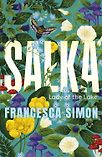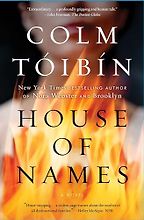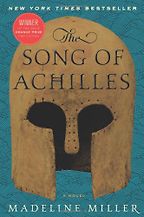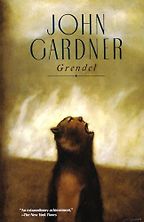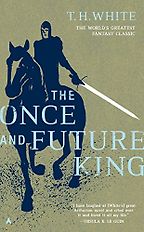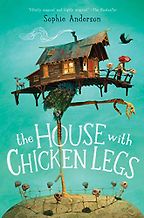What is the appeal of mythological retellings, as a reader and as a writer?
For both a reader and a writer, the plot is not the point. We know that Iphigenia is going to be sacrificed; we know that the Greeks are going to win the war in Troy; we know that Clytemnestra is going to kill Agamemnon. So the point, and the reason these stories have survived, is that these are modern retellings. These are modern interpretations. Obviously, our age has different interests than previous ages. So it’s a way of looking at these stories in a fresh way, usually from a different point of view, although not one hundred percent of the time.
As a writer, I’ve always been drawn to myth, to legend. My new book Salka is a retelling of the Welsh myth of the Lady of the Lake – not the Arthurian one, the Welsh one! But I was interested in how closed communities react to outsiders, and also in how much compromise works in a relationship – to what extent do you change who you are in order to make a relationship work? These were my interests, and I used the story as a way of exploring those ideas. The outlines of the myth are the same, but the emphasis is quite different.
For my choices, I tried to choose a range of different stories and different myths.
Let’s look at your choices, then. We start with a story that certainly challenges a modern audience, with a premise that seems unbearable to us now… Can you introduce House of Names by Colm Tóibín?
House of Names is a retelling of the story of Clytemnestra, Iphigenia and Agamemnon. For those who don’t know, Agamemnon sacrifices his eldest daughter, Iphigenia, in order for the gods to provide winds to get the fleet going. But Colm Tóibín’s book is about the people on the sidelines. Iphigenia doesn’t tell her story, and Agamemnon isn’t telling his story; it’s Clytemnestra, and it’s Iphigenia’s siblings Orestes and Electra.
It is almost unbearable to read, especially the beginning, because despite what I just said about knowing what’s going to happen, you really hope that it’s not going to happen. Clytemnestra is trying desperately to save her child. She and Iphigenia have been tricked into coming to the Greek camp, where Iphigenia thinks she’s going to marry Achilles, and instead discovers she’s going to be sacrificed. And it’s a way of looking at the ramifications – at what happens afterwards. Agamemnon just acts like nothing has happened, really. And Clytemnestra has ten years to plot her revenge, which she does in gruesome form. There are also the political ramifications – they’re supposed to be ruling this kingdom, and the royal family is busy murdering each other. Tóibín looks at all those other people who’ve been affected by this choice.
So retellings, then, are a way of seeing the story through fresh eyes. You know the story, but maybe you haven’t considered: what was it like for Orestes? What was it like for Electra? Clytemnestra is often portrayed as just this blood-thirsty woman who kills her husband, kills Cassandra, takes a lover… But then, when you know the full horror of what she was exposed to with her daughter being sacrificed, it’s amazing she lasted so long before killing Agamemnon! So it’s a very powerful retelling, and it makes you think about the story from other people’s points of view. As writers and also as readers, we tend to get caught up in the point of view of whoever’s telling the story. Part of you can think, “Well, what choice did Agamemnon have? He was the leader of the Greeks. They’re getting restless. They need to set sail. The gods have insisted. Who is he to disagree? You have to obey the gods”. You can go along with it. But telling the story from the viewpoint of the rest of the family really stops you short.
You mentioned bringing modern concerns – is Tóibín showing a modern response to the notion of sacrifice, or ‘reconstructing’ something that might be period-appropriate?
He is very much staying within the Greek world; he’s not trying for a modern response. But the family is horrified – no one in the family shrugs and says, “Oh well, what can you do? That’s how it is.” Their response is very human, exactly as you might expect. And Clytemnestra no longer believes in the gods anyway, so for her, the futility of it… That’s a very interesting point that Tóibín makes, that unless you believe, all of this is pointless. So I don’t think there is an attempt to put a modern sensibility here – although there is in one of the other books I’ve chosen…
Let’s move on to your next choice then, staying with the Greeks – and indeed featuring Agamemnon again! Please introduce us to Madeline Miller’s Song of Achilles…
Even though Miller’s prose doesn’t say, “Hey, let’s get with the program” – I mean, she doesn’t use modern language – she does inject a bit of modern sensibility. But I’ll get to that…
It’s called The Song of Achilles. It’s not called the wrath of Achilles, which is how Homer starts his story. So the ‘Song’ of Achilles immediately softens him, because what we know of Achilles from Homer is that he’s this big warrior, and he has a foul temper, and he’s incredibly selfish, and he’s very happy to sulk. He’s very childish; he sulks in his tent while people are being massacred because Agamemnon has stolen one of his concubines, Briseis. But it’s back to what I said before, about seeing the story from a different point of view… It’s narrated by Patroclus, Achilles’s great friend and lover. So it’s understandable that Patroclus, as the narrator, would write the Song of Achilles.
We know how the story ends. Patroclus doesn’t. They know that Achilles has chosen to have a short, glorious life versus a long, dull life – which at eight years old, when I first read these myths, I always thought was a terrible choice. Who would choose just to be famous after their death? I thought that was very foolish. So again, this story gives a different angle on the hero.
The question that Miller is trying to answer, I think, is: why does Achilles go back into the fight, after his sulk? Why does he just forget all about his tantrum? And it’s because Hector kills Patroclus. So obviously their relationship had to be something of supreme importance for him to just cast aside the sulking and the tantrum. And then the true wrath of Achilles comes out. So it’s very much a love story, and has an almost domestic focus, even though she writes battle scenes.
A modern bit she interjects is that Patroclus and Achilles set up a little tent for the women, to try to save the women from being raped, which I’m not sure they would have really been too bothered about then. But fair enough. She’s not doing a translation of the story. She is a modern writer, she’s a woman, and she is putting her own spin on it – and if Patroclus is a gentle, wounded, exiled person, why wouldn’t he be concerned about the women? It’s not unreasonable. It’s unlikely, but it’s not unreasonable, and she is looking at this war from a modern point of view, and the consequences for women. Just as Achilles-the-lover is brought to the foreground, so the consequences of war for women are also brought to the foreground in this telling.
People who are just mentioned, who are just names, can step forward in retellings. It’s a bit like Rosencrantz and Guildenstern. You get a chance to see and hear the story from a different point of view, and it does change your perspective. It widens, it deepens.
Your third choice is absolutely a change of point of view. Moving to the Anglo Saxons now, could you tell us about Grendel by John Gardner?
I did Old and Middle English at Oxford, and I did Medieval Studies at Yale. Grendel was published in 1971, and I was absolutely astonished by the idea that you could take a poem like Beowulf and tell it from a different point of view. I know Wide Sargasso Sea came out in 1966, too… but now it’s a commonplace. “Let’s tell Hamlet from Ophelia’s point of view” – people are doing it all the time. But Grendel was an incredibly original idea, to tell the story from the point of view of the monster, not from the point of view of the hero. It was astoundingly original, and I think it really did tip off a lot of writers, just giving them that idea – like James, the retelling of Huckleberry Finn from the point of view of the slave Jim, which is a brilliant novel by Percival Everett. And they become their own works of art, with a different starting point.
Grendel, the monster, is a remarkable creation. He’s lonely, and his bloodthirsty nature causes him so much misery and sadness. But he’s also quite casual about eating people. He’s tormented by the mead hall and the light, and he’s always skulking around, peering in through cracks in the wood. As a portrait of loneliness and sadness, it’s just an astonishing creation. He’s still as monstrous as you might expect, but it was just focusing on what it would be like to be that monster whose raison d’etre is going into mead halls and eating people. He likes to talk about philosophy, and he’s moved – terribly moved – by song and music. Like I said, it doesn’t stop him! But the monster as a lonely creature just stuck with his horrible mother is quite a portrait.
And the language that he uses… John Gardner was a medievalist. One of the phrases I really liked was that Grendel says, “Morning nails my eyes.” The way he sees the world – it’s so grim, so dark, there is just no light for this monster. I felt sorry for him. His own nature traps him.
Do we see more of the mother?
No, actually, surprisingly. She’s just kind of skulking. She can’t speak, so she’s just lumbering around the cave. I was surprised… I kept expecting the mother to appear because she has a much bigger role in the poem.
It seems you’re signing up for tragedy, to read a story from this point of view, and starting to sympathise…
It’s not sympathizing. It’s more understanding, I suppose. The idea of the mead hall was that there was this little flicker of light and warmth in a world of tremendous darkness – which Grendel is part of, of course. So you have this little tiny bit of shelter and comradeship, and he’s completely excluded from it. It’s very powerful, very unexpected, this portrait of loneliness. But he has no pity, he’s so filled with rage. So it’s about understanding the rage of a monster, and what he’s trying to feed – because however many people he kills and eats, it doesn’t assuage his sorrow or his loneliness.
On the subject of points of view – I read that there will be fifteen points of view in your forthcoming book Salka. Could you tell us about the story inspiring the book?
Salka, the Lady of the Lake, is based on the legend of the lady of Llyn y Fan Fach – which is the beautiful lake that they use in every film about Wales. The basic story is the story, essentially, of the Little Mermaid, or the opera Rusalka. It’s a water sprite or fairy who marries a shepherd on condition that he never strikes her three blows. But the blows are not physical blows. In some of the versions, he taps her on the shoulder and says, “What are you doing?”… In no version is it about domestic violence. It’s about him upbraiding her for, basically, being a fairy, because she behaves oddly. I picture her as neurodivergent. She laughs at a funeral, or she’ll cry at a wedding, because she can see into the future, and she is very blunt. Three times he tells her to stop, and she says, “You’ve shamed me for my fairy ways” – and she has to return to the lake forever after the third blow. She takes everything; fairies always bring great wealth, and she removes it.
In any collection of Welsh fairy tales, this story appears. It varies – sometimes the challenge is, “You mustn’t ever strike me with iron” – but there’s always an accidental element. For example, in one of the versions, they’re saddling a horse, and he throws the bridle to her, and the bridle touches her arm – and that’s it, he’s touched her with iron, goodbye. Those versions didn’t do much for me. In some, she leaves; in some, he kills himself, he drowns; in some, the children stay, in some they go. I chose the saddest really, where she brings everything and she takes everything.
I think there’s also an element of wish fulfillment. He’s a shepherd, and this Goddess has decided that she’s going to marry him. But fairy tales always have a bite in them. She says, “If you strike me three blows, I must leave” – and he says, “I love you. I would never hurt you. I would never hit you.” He sees it as, if you hit me three times – and that’s not what she’s talking about! As always with these things, he doesn’t actually understand what she is saying – which is a theme through a lot of fairy stories.
How did you come to tell it from so many perspectives?
My retelling started life as a cantata, a piece for two voices and orchestra, which I wrote with Gavin Higgins, who I’ve also written an opera with. This was premiered at the Three Choirs Festival and at Aldeburgh, the music festival. Because it started as two voices, that gave me the idea for doing it from different viewpoints, but it happened very organically. I didn’t intend it to be more than one or two voices. I didn’t know how I was going to write it – I thought, maybe it should be third person, or maybe she should tell the story. And what happened, literally, is that his mother got a word in. And so I thought, “Oh, alright, she can say something”. And then the dog decided he wanted to say something. It really did happen like that. And after four voices, I thought, “I’m going to let everybody talk.”
The idea of the book, essentially, is the impact that this intense relationship has on this little village: on the girl that he didn’t marry, on his best friend… It makes his friends all question their rather tepid relationships, because they can see this is a very, very hot relationship that he and Salka have. And, of course, Owain and his mother have to hide the fact that Salka’s a fairy. This is not a good thing to be. Fairy is a huge insult. I read a lot of folklore reports, and there are several reports of fights breaking out at fairs when someone accuses someone else of having fairy blood. So we might think it’s charming, but it was very much an insult to suggest that you might be descended from fairies.
I find the viewpoints very potent. I’d never told a story from two different points of view, so as a starting point that was a very interesting way of telling the story. But also, I realized pretty early on that if you’re talking about two people who are madly in love, and know they have this thing hanging over them, it’s kind of boring, because it’s very repetitive. Oh, he’s done it one time. Oh my God, the second time… So broadening it out really helped the story along. Her children come in, and they’re having a hard time because people don’t want to play with them because they sense her otherness. That’s a really important theme: how does a society deal with people who are different? Which is quite a modern idea, too.
It’s a fascinating take, because what interests me about fairy is its place in people’s real, social beliefs; so to see the whole village really adds to the interest…
The village just came to life. I was thinking, “Who’s the girl he didn’t marry?”, right? That was obvious. And then the next door neighbour, and the disappointment of not being able to join the farms… the ripples, really, of marrying someone who comes from away. That’s all they say about her, ‘she comes from away’ – because most people never left their village. It’s set when things didn’t change that much, and a lot of people never left – they maybe went to a market, but that’s it. So saying you came from across the water – what does that even mean?
You mentioned folklore reports earlier – what other sources were you using? I know this story comes up in the Mabinogion…
Oh, lots of sources. One was an old book of Celtic folklore… The Professor of Welsh at Jesus College Oxford, which incidentally was my college, went round in the 19th century, collecting stories. And it was things like, “I spoke to the blacksmith, and he referred me to the old woman who lives over there, and she told me that her grandmother had told her…”
A book which I really enjoyed was Carolyne Larrington’s The Land of the Green Man, which is a journey through the supernatural landscapes of the British Isles. Carolyne just retired, but she was Professor of Medieval History and Old Norse at Oxford, and also very interested in Game of Thrones. Carolyne loves this myth, and I’ve got to know her. One of her areas of study is how myth is used in a modern way. The opera I mentioned writing with Gavin was about Hel, the Norse goddess of the dead, as an angry funny teenager. So the work I do is very much related to Carolyne’s academic work.
The opera was based on your book about Hel too, right? And you’ve had other mythic retellings for younger readers…
Yes. The Monstrous Child tells the story of Hel, an angry, lovelorn and funny teenager who happens to be the Norse goddess of the dead. Hel is half-human, half-corpse, daughter of a god and a giantess, who Odin hurls into the underworld and forces to rule the dead.
Hel’s story seemed a great way to write about dysfunctional families and the turbulence, passion, and restlessness of adolescence, as well as a way of exploring body image and why so many young girls and women are convinced their bodies are hideous. In the myth, Hel spends eternity lying silent on a putrid bed. I thought this was a striking image of depression – a trapped teenage girl who has painted the walls of her bedroom black and won’t step outside. Why? What happened to her? I wanted to tell Hel’s story.
I also wrote a book called Helping Hercules, which was about a girl who finds a magic coin that takes her back to the time of the Greek gods, and she goes along with Hercules. She’s not just helping Hercules – we see things like the judgment of Paris, where she intervened. She offers bubble gum, because there’s no sugar in Greece. Basically she throws all the stories off-kilter, coming up with a lot of the answers and having fun with the Greek heroes.
But Salka is really a big one for me. The original cantata was called The Faerie Bride.
Great. Let’s talk about your fourth choice now – we’re staying in Britain, with the Celts. Could you tell us about T H White’s The Once and Future King?
You know, there are some books that you read last month and you can barely remember what they were about, but I remember very specifically reading The Once and Future King. I was eleven years old, and we were doing English in primary school in America. I was in the top group, and we were allowed to read a book, any book we wanted, as long as there were five words in the first ten pages that we didn’t know, and then we had to look them up. And I remember so vividly reading this book. I remember the beginning of The Once and Future King, which had the word ‘astrolabe’ in the first two sentences. It goes: ‘On Mondays, Wednesdays and Fridays it was Court Hand and Summulae Logicales, while the rest of the week it was the Organon, Repetition and Astrology’…
I’m curious, you’re a huge name in children’s books – would you get away with that?
No! They wouldn’t allow me to. And in the next sentence, ‘the governess was always getting muddled with her astrolabe’. So already I’ve got three words that I had never heard. What’s an astrolabe? I looked them up… summulae logicales is a logical treatise. So I was just like, whoa… What is this lesson? I remember so much about this book. I remember sentences from it – let alone the characters. And I was just thinking this morning, it’s probably why I ended up doing Medieval Studies at Yale. The book had the most tremendous impact on me.
It’s four books collected under the title The Once and Future King, which is a beautiful title, and it’s because Arthur becomes part of the sleeping army myth. I’ve actually written a book called The Sleeping Army; across most cultures, there’s the idea that the king and his knights are asleep under a mountain – under the Tower of London, or the Terracotta Army in China… It’s a very general worldwide myth, and Arthur is now part of that. So he’s the future king, because one day he will wake up and save the kingdom.
The book is set in medieval England. But what really got me, I think, was the funny, casual, easy way T.H. White tells this story. He’s taking a story that I knew, but treating it in a totally different way. I could not wait for my time to read this book during the school day. I also took it home because it was just overwhelmingly interesting. Now, the first one is The Sword and the Stone which is more aimed at children, I think, and the other three most definitely are not. It was eye-opening, the affair of Lancelot and Guinevere, who he calls Jenny. I love that. He has a jaunty, funny style.
He also talks a lot about chivalry. What does it mean to be chivalrous? Of course, he’s living during the World Wars. Arthur wants to be a good king – what’s stopping him? It’s about warfare. How do you put things right? How do you correct things? It’s about being brought down by your own flaws – and also by curses and myths and magic – but you have these very real people.
I was also fascinated by the third book, which I think is probably my favourite, called The Ill-Made Knight. It’s about Lancelot being hideously ugly, which is not how you think of him. And the line I remembered was right at the end, “The miracle was that he had been allowed to do a miracle.” And that’s the whole story of the ill-made knight.
I learned about chivalry and the whole pageantry of it, but all in a jaunty style, and these people seemed very real to me – not stiff – they were very, very human. It’s a fantastic book. I’m sure it’s why I did medieval studies. It’s only because of this interview that I thought about it, but I’m sure this is what kicked it off. I love all that – I love the Provencal singers, I love the idea that there was something called courtly love. …And of course knights were bloodthirsty. They were like hoodlums. But this idea that somehow they were bound by this code of chivalry, and then the way that Christianity got its tentacles in there and tried to make the quests about something else, about purity… What does it mean to be pure? And to what extent can you resist your fate? All these ideas are in there, but it’s an incredibly fun and interesting read. I’m amazed how much I remembered from reading it when I was eleven.
We’ve come to your last choice, which brings us to Russian folklore. Could you tell us about The House with Chicken Legs by Sophie Anderson?
Yes. Now, I thought this book was absolutely outstanding, and it’s very different from the others. She is taking the Baba Yaga stories, the witch or the old lady who has a house with chicken legs that runs around. Is she evil? Is she good? And so far as I’m aware, Sophie Anderson has used that as the basis for a totally original story. This could be my ignorance, but I think she’s taken the character and done something very original with it. It’s different from the other retellings.
This is about a girl who is betwixt and between. Marinka lives with her grandmother, Baba Yaga, whose job is to usher the dead back to the stars. So the dead come every night to the house with chicken legs, and the grandmother welcomes them and cooks for them, and then guides them through the doorway so that they will once again be part of the stars. I found the book very, very moving, because as part of the ritual of death, Baba Yaga asks them, “What are you taking to the stars? What has been meaningful to you in your life?” – which is quite a profound and big question. What did you gain from your life here? She’s trying to make a celebration of something that was meaningful in your life on Earth, before you become part of the universe.
I don’t want to do any spoilers, but there is a very big twist about Marinka, the little girl who hates being just with the dead – as any child would. She longs to have friends, longs to go to school, doesn’t like living in a house that is always running away and going different places. So it’s really looking at what it’s like to live in a world in the space between life and death. It’s a book set in a liminal place, in that passage.
And it’s also looking at the question, what does it mean to be a witch? What is an old lady, what is a witch? She guides them through the gate… Now, I have never read a Baba Yaga myth that’s about Baba Yaga guiding spirits through the gate. I think that’s probably completely original.
The book was so outstandingly good: a really wonderful story, really wonderfully told. It’s profound, and a very special way of taking a character from a fairy tale and then spinning a story around the character, so you keep almost just the skeleton of the story – the house with chicken legs – though in her telling, the house is very benign. There’s a symbiotic relationship between Baba Yaga and the house.
I thought Sophie Anderson did a really brilliant job. This is more inspired by, as opposed to retelling from a different point of view, but she is looking at Baba Yaga as a much more benign figure than the version often portrayed in Russian fairy tales.
We talked earlier about bringing modern concerns to these stories, but this choice in particular feels like it highlights the timeless concerns in them too.
These stories wouldn’t last if they didn’t have big resonance. You could say that the House of Names is about the world’s most dysfunctional family, and about the world’s worst dad killing his daughter, and the violence within families. That, unfortunately, is true. But also we can’t escape our own time and our own sensibility. What strikes you and me about the story, what interests me as a writer, won’t be what will interest someone in a hundred years’ time. They will have a completely different interpretation, but I know that it will still speak to them, just as it speaks to us now.
The word I often use is bass. There are bass notes here: they are about things that really matter, like, what is important to you in your life? How do you strive to be good? How do you cope with not being good? How do you cope with human weakness? How do you cope with loneliness? How do you cope with feeling outcast? These are universal themes, and they’ve been cast in these stories of heroes and monsters and gods, and woven with magic and power, but the basic fundamental themes are there.
Interview by Sylvia Bishop
March 28, 2025. Updated: June 22, 2025
Five Books aims to keep its book recommendations and interviews up to date. If you are the interviewee and would like to update your choice of books (or even just what you say about them) please email us at [email protected]
Five Books interviews are expensive to produce. If you've enjoyed this interview, please support us by donating a small amount.

